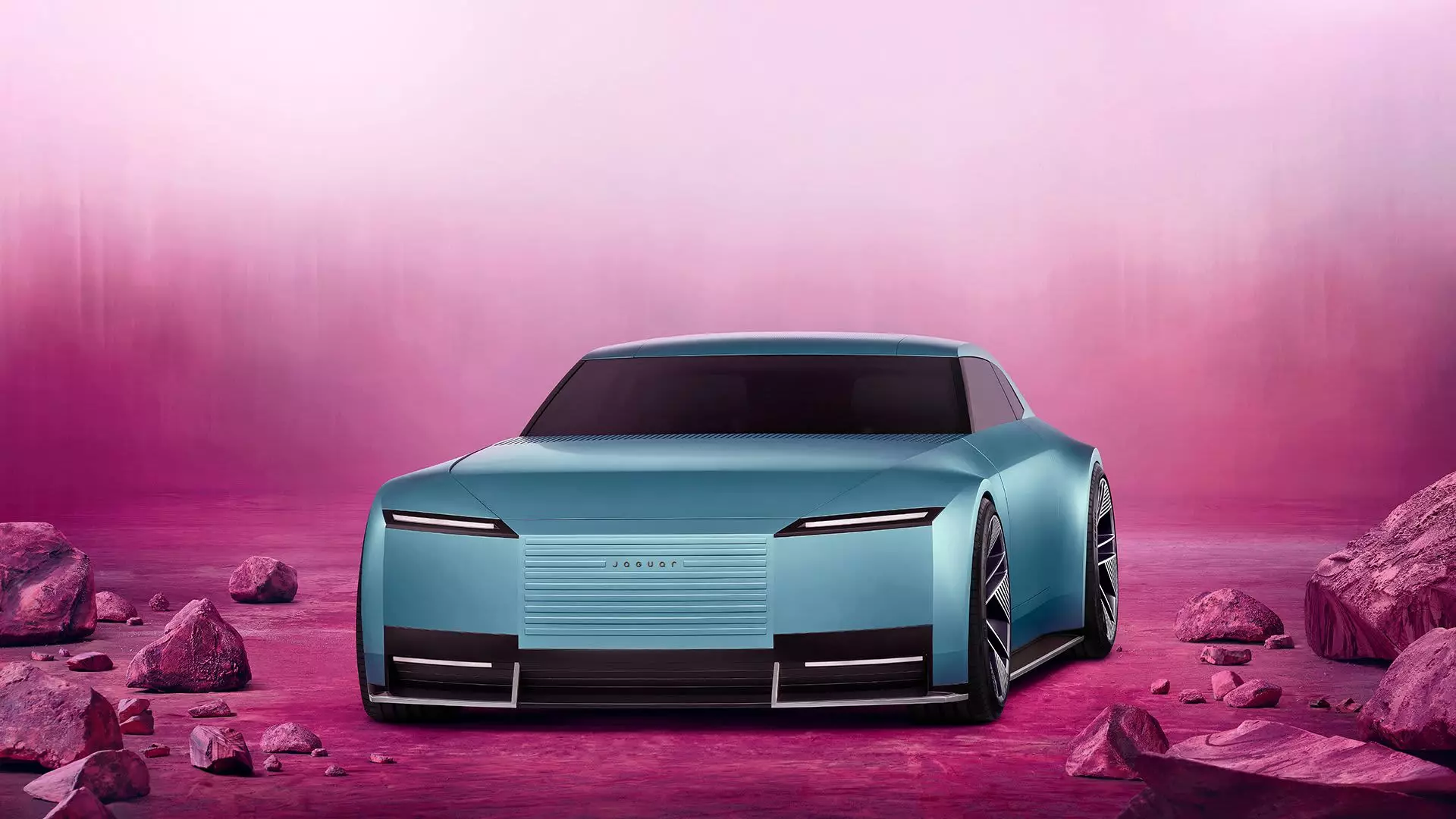Renowned British automotive manufacturer Jaguar has embarked on a transformative journey with the unveiling of its all-electric concept car, aptly named “Type 00.” Announced on Monday night, the vehicle serves as a harbinger of the company’s fresh design philosophy, which opts for a minimalistic approach yet oscillates between simplicity and extravagance. This bold transition marks a radical departure from the marque’s traditional sporty aesthetics, shifting towards a design characterized by boxy structures, sleek lighting, and oversized wheels.
Concept cars have long served as a platform for automakers to test the waters of consumer reception, offering a glimpse into the brand’s future direction without any intention of immediate market availability. Jaguar is poised to expand its electric vehicle (EV) lineup, with plans for a four-door grand tourer (GT) foreshadowed for 2024, sharing aesthetic elements with the Type 00 model. Enthusiasts and industry watchers eagerly anticipate Jaguar’s performance specifications for the production version, which boast an impressive range of up to 430 miles per single charge and rapid charging capabilities that allow for 200 miles of range in just 15 minutes.
The introduction of the Type 00 comes in the wake of Jaguar’s controversial rebranding campaign, highlighted by a colorful, avant-garde promotional video. This visually striking advertisement featured models from diverse backgrounds dressed in vivid clothing, set against a stylized backdrop. For a duration of 30 seconds, the commercial pivoted away from displaying cars—an unusual choice for an automotive brand. Instead, it was accompanied by new typographical elements and logo designs, capitalizing on a theme of “Copy Nothing” which aimed to resonate with modern sensibilities.
However, this rebranding effort did not come without its share of criticism. The move to abandon the longstanding Jaguar logo—an animal emblem that has been synonymous with the brand since the 1950s—spurred backlash on various social media platforms. Critics labeled the campaign as “woke,” suggesting that it forsook the brand’s heritage in favor of fleeting trends and societal commentary. Many voiced concerns that the absence of vehicles in the promotional material contradicted the fundamental essence of an automotive brand, igniting a heated debate within the public sphere.
Jaguar has defended its rebranding strategy and promotional video, stating that their comprehensive approach to reinvention is both ambitious and imaginative. A representative of the company, managing director Rawdon Glover, articulated the necessity of this re-examination of brand identity, acknowledging the need to pivot towards a different consumer demographic and price point. Glover highlighted, “We need to re-establish our brand and at a completely different price point, so we need to act differently.”
This acknowledgment of shifting consumer trends is particularly critical as the automotive sector navigates a significant transition towards electrification. The decision to cease new car sales in the UK by November while reorienting as an exclusively electric brand by 2026 embodies a wider industry trend. Several manufacturers have laid out similar plans, though some have faltered in the face of less-than-anticipated market adaptation to electric vehicles.
As Jaguar traverses this pivotal juncture, it remains to be seen how well the brand can reconcile its storied history with new-age expectations. The Type 00 concept car marks not only a new vehicle but symbolizes a broader vision to revolutionize the electric vehicle landscape. With the automotive industry bracing itself for a future defined by sustainability and technological innovation, Jaguar’s ambitious roadmap could either establish it as a leader or subject it to further scrutiny in a rapidly evolving market.
Jaguar’s gamble on its electric future, marked by the launch of the Type 00, serves as both a testament to its willingness to innovate and a challenge to redefine its legacy in the automotive realm. As they navigate the complexities of modern branding and shifting consumer preferences, the effectiveness of these strategies will become clear in the coming years. The commitment to an electric-only future may very well reshape not only Jaguar’s fortunes but also its identity in an increasingly competitive industry landscape.

